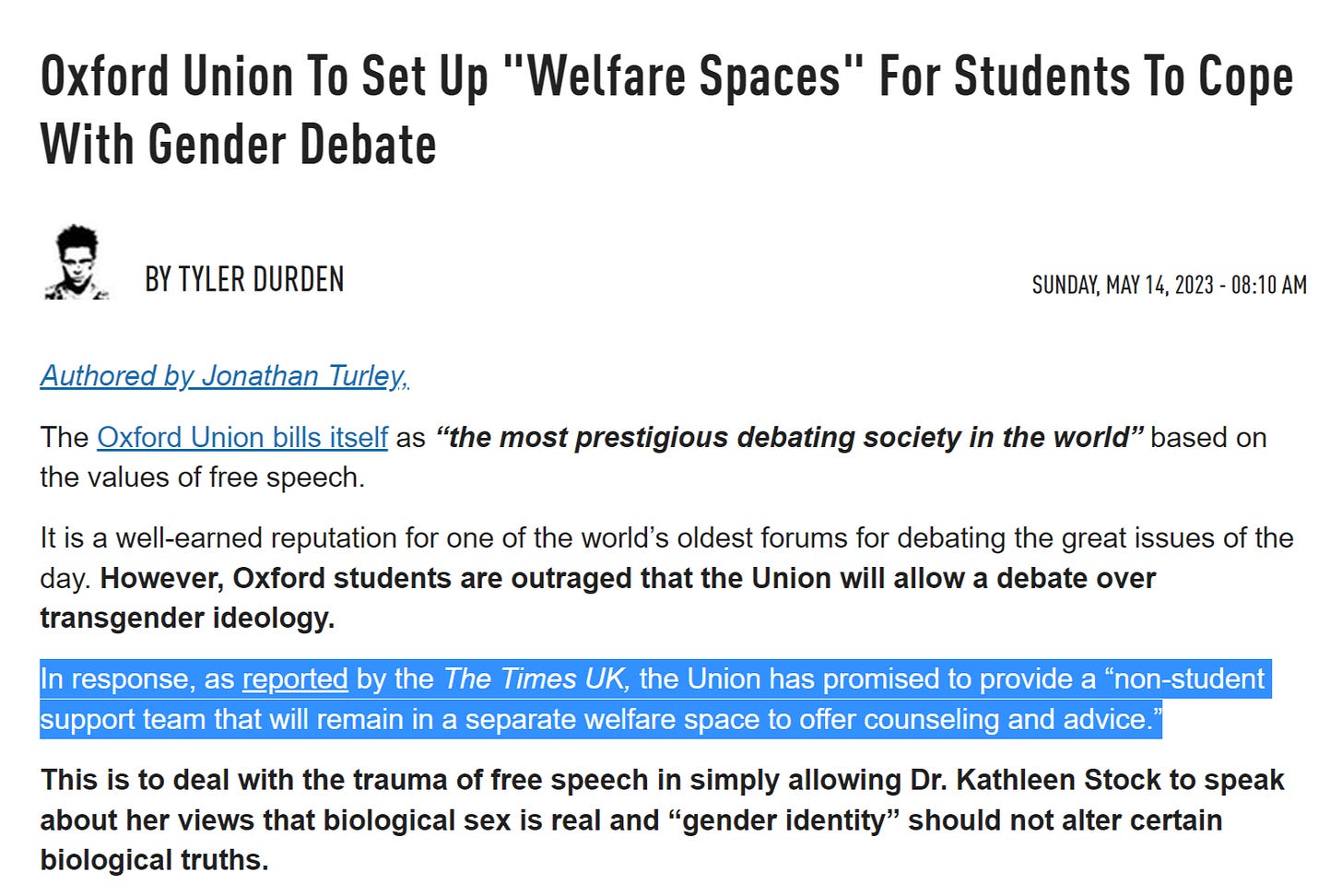these days it seems like every piece of criticism is “shaming.” fat shaming. race shaming. gender shaming. privilege shaming. shame shaming.
it’s all supposed to be bad and rotten and mean and the sort of thing that people are not supposed to do to one another.
but what if past a certain point that’s just plain wrong?
what if past a certain point you need shame and demanding that it never be turned upon you is, in fact, that which is shameful?
what if without shame there is no resilience and a personal sense of mortification therefore represents a vital warp and weft within personal and societal fabrics?
what if shame is part of growing up and becoming autonomous and is a vital internalization to keep you off the rocks of self-indulgent self-pity and on a course for self-reliance and self-governance?
what if sometimes shame is good and makes us better, healthier, more actualized people by keeping us from acting like big fat colicky babies?
because i think perhaps it does.
the goldilocks zone
like many things in societies and real life, shame is likely something of a goldilocks zone. for those unfamiliar with the metaphor, it works like this:
for habitable planets, you want liquid state water. too close to the sun, it’s steam. too far away, it’s ice. just right: you get water, life, ecosystems and all the things that come with it. it becomes a place you can live.
many, many things work like this. bench press 50 pounds, nothing happens. bench press 275, you get stronger. try it with 600 and you crack your sternum and get an ambulance ride.
106 degree body temp: brain damage. 85 degree body temperature: you’re about to die of hypothermia. 98.6: ahh.
porridge? natch.
shame seems no different.
shame too much and you’re a repressive autocracy that stifles and stunts.
shame too little and you cultivate the frailty and malfunction of those who refuse to become adults or gain resilience.
and somewhere in the middle there’s a happy zone of functional, free societies full of sound people.
and while we can certainly have a spirited debate on exactly where we want to reside on this continuum and intelligent and well-intentioned people may wrestle with it, i would argue that many of our institutions have drifted so far outside the heat of the shame star and that it’s getting, to use a technical term, “pretty bloody obvious that we have a humongous problem on our hands.”
we have enabled the age of the crybully whose cultivated infirmity and fragility bubbles over into endless demands for redress and accommodation at the expense of everything and everyone.
because when you put crybullies in charge, they do nothing but cry.
this is neither success nor thriving: it’s failure.
this is not empathy nor compassion nor accommodation: it’s breakage.
it’s an invitation to be proudly performative of that which should be shameful.
honestly, it’s a hostage situation waged by half-formed socio-empaths.
no student at such an august institution as oxford should be so challenged by simply hearing ideas with which they disagree as to be rendered some sort of bawling babe triggered into the desperate need of “professional help” in “safe spaces.”
that’s shameful. it’s fragile. it’s broken and it’s weak.
such people have no business in a place like oxford and places like oxford have no business accommodating much less kowtowing to such histrionics.
i’m not sure how to say this any more plainly:
we are not helping the buttercups by accommodating their desires to refuse to toughen up.
this is a catastrophic failure and constitutes a complete inversion of the role universities ought to play in helping hone the minds of the best and brightest.
and it cannot go on this way.
this is destructive, counter-productive, and perhaps worst of all:
this is bereft of hope.
it’s soul crushing demolition of the ideas of the enlightenment, the notion of reason, and the concept of self-regulating humans capable of interacting on even terms with their peers absent the endless intrusion of some parental proxy to prop up the failure of these fledglings to mature into anything recognizable as an adult.
it’s societal poison spread by the craven acquiescence to that which should not even be countenanced, much less normalized.
it’s producing damaged people and their frailty is everyone’s problem, most of all their own.
and at a certain point they are going to have to grow up.
it’s time to stop shaming the idea of shaming and return to the habitable zone of humanity.
and oddly enough, a little shame might get us there.









Parents were the first problem. Narcissistic Uber liberals (you know they are all Karens) helicopter parenting and giving zero consequences, chores, or punishments. It’s been happening in an ever widening circle since my kids were young (mine are 27-36 in ages now).
When my “middlest” as she calls herself was 15, I told her that if she lied to me again I’d take her off the basketball team. She did and I did. And not only did I take her off the team I told the coaches WHY I took her off the team. (Matter of factly, and said she’d try out again the next year, not as gossip!) Most of the other parents couldn’t believe I’d followed through with it and said, “I wouldn’t have been able to do it.” I said, “So she’s in trouble for LYING, I told her upfront what the consequence would be, and she made a choice. I would have been LYING if I didn’t follow through!” That seemed pretty obvious to me but they mostly looked at me blankly. Anyway, she is , at 31, the most honest (and kind) person I know.
My job as a mama was to raise productive members of society who could lead their own fulfilling lives, NOT to be their friend. Sure, we’re friends now, but at 10 or 13 or 16? Um no.
This essay on "shame" is somewhat similar to discussions I've had on "tolerance."
While too little shame is bad for a society and individuals, too much tolerance has the same sort of effect: it's bad. That's how we get to being "tolerant" of pedophiles and murderers and so on.